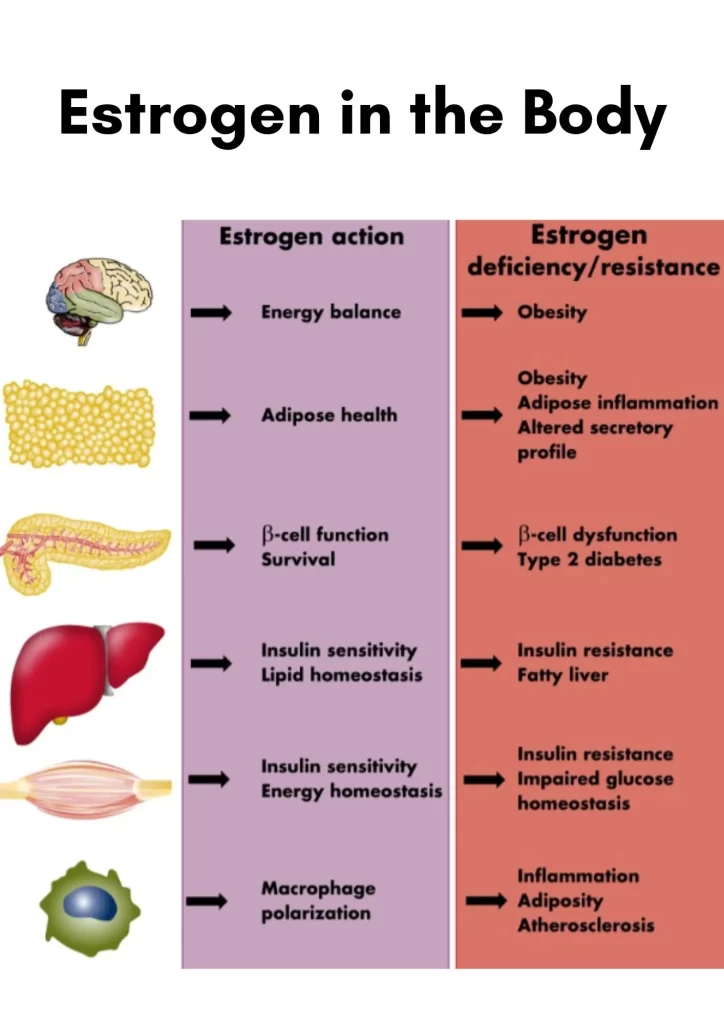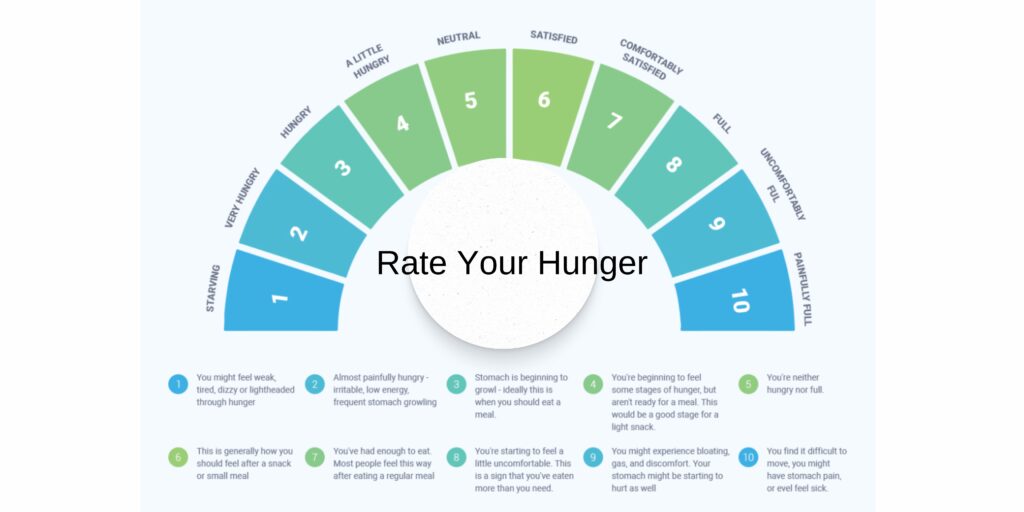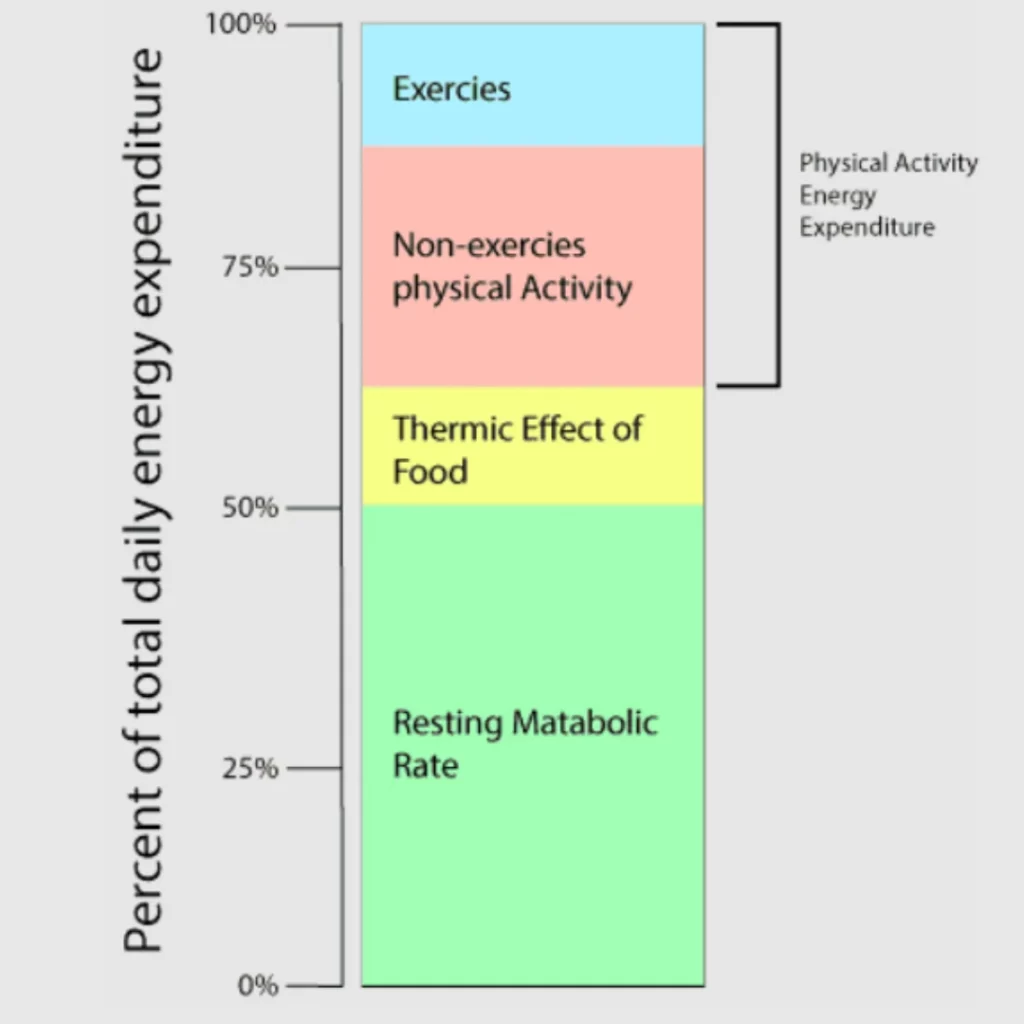- Understanding Menopause and Its Impact on Weight
- Aging and Menopause Gain Weight
- Hormonal Changes in Menopause Gain Weight
- Nutrition Tips for Managing Menopause Gain Weight
- The Importance of Physical Activity and Exercise
- Mindful Eating: Strategies to Curb Cravings
- The Benefits of Strength Training for Weight Management
- Managing Stress and Its Effects on Weight
- The Role of Sleep in Weight Control During Menopause
- When to Consult a Doctor or Nutritionist: Menopause Gain Weight
Menopause can feel like an unwelcome chapter in a woman’s life, often bringing along stubborn weight gain. As your body responds to fluctuating hormones these changes can disrupt both your routines and self-image. But it doesn’t have to be this way! The right strategies can help you reclaim your body and your confidence. With practical tips here we’ll explore effective strategies to combat menopause gain weight so you’ll be equipped to take charge of your body. Let’s dive in!
Understanding Menopause and Its Impact on Weight
Menopause marks a significant transition in a woman’s life, typically occurring between age 45 and 55. This biological process signifies the end of menstrual cycles and fertility, and can often be accompanied by a variety of physical and emotional symptoms. Weight gain during menopause is common and can be both unexpected and challenging to manage for many women. Understanding the underlying causes of this weight gain is crucial for developing effective strategies to combat it.
Aging and Menopause Gain Weight
Menopause, including the perimenopause years, coincides with an aging body and age-related weight gain is pretty much universal for both men and women. And even for those where the changes on the scales are not obvious the evidence is clear that muscle mass starts to decline with age. This decline starts as early as in our 30’s, which means the start of a decreasing metabolic rate and decrease in fat-free mass.
Combined with general lower physical activity levels that typically occurs with aging, these changes (even if subtle) result in a decrease in both resting and activity related energy expenditure – your metabolism. This means the body can now run on fewer calories than it used to, and, unless changes in dietary habits and physical activity are made, aging can result in weight gain as calories no longer required by the body now become excess calories stored as body fat.
Hormonal Changes in Menopause Gain Weight
The aging process aside, menopause, per se, does not necessarily result in significant menopause gain weight, but, however, can lead to increased belly fat as hormonal changes can play a significant role in menopause weight gain. As estrogen levels decline, the body’s ability to regulate weight and fat distribution is affected.
Estrogen is known to influence how fat is stored and burned in the body. When estrogen levels drop, the body tends to store more fat, and especially belly fat. This shift in fat distribution and increase in abdominal fat can increase the risk of developing metabolic syndrome, type 2 diabetes, and cardiovascular disease.

In addition to hormonal fluctuations, menopause can also bring about lifestyle changes that contribute to weight gain. Menopause symptoms can include increased stress, joint pain, mood changes and lack of motivation to exercise to name a few. Decreased levels of physical activity, sleep issues, cravings and alterations in eating habits all combine to create a perfect storm for menopause gain weight. However, with the right knowledge and strategies, it is possible to navigate this transition healthily and maintain a healthy weight.
Progesterone, another hormone that decreases during menopause, may also affect weight. Lower levels of progesterone can lead to water retention and bloating in menopause, which can contribute to a feeling of weight gain. While this type of weight gain may not be as significant as fat gain, it can still feel like it is and affect self confidence.
The hormonal changes of menopause can also impact other hormones that regulate appetite and metabolism. For example, changes in estrogen levels can affect the production of leptin, a hormone that helps regulate hunger and energy balance.
With lower levels of leptin, women may experience increased hunger and cravings, making it more challenging to maintain a healthy diet and weight.
These changes can make it more difficult to maintain or lose weight, even for women who have previously managed their weight successfully. Understanding these hormonal changes can help women develop targeted strategies to manage their menopause gain weight.
Nutrition Tips for Managing Menopause Gain Weight
Maintaining a balanced diet is one of the most effective ways to manage weight during menopause. A well-balanced diet can help regulate hormones, boost metabolism, and reduce the risk of weight gain.
One key strategy is to focus on nutrient-dense foods that provide essential vitamins and minerals without excess calories. This includes a variety of fruits, vegetables, whole grains, lean proteins, and healthy fats.
Incorporating more plant-based foods into the diet can be particularly beneficial during menopause. Foods such as leafy greens, berries, nuts, seeds, and legumes are rich in antioxidants, fibre, and phytoestrogens, which can help balance hormones and reduce inflammation.
Fibre and protein rich foods can also help keep you feeling full and satisfied for longer, reducing the likelihood of overeating and cravings for unhealthy snacks.
Another important nutrition tip is to monitor portion sizes and avoid high-calorie, low-nutrient foods. The obvious processed foods, sugary beverages, and high-fat snacks can contribute to menopause gain weight and should be limited.
It’s also important to check the nutritional content of items marketed as ‘healthy’. For example, some low fat products are packed with higher levels of carbohydrates instead. Instead, focus on whole, unprocessed foods that provide sustained energy and support overall health.
Drinking plenty of water is also essential, as staying hydrated can help regulate appetite and support metabolic function. By making mindful food choices, women can better manage their weight and navigate menopause with confidence.

The Importance of Physical Activity and Exercise
Regular physical activity is crucial for managing weight during menopause. Exercise helps boost metabolism, burn calories, and maintain muscle mass, all of which are important for weight control. Engaging in a combination of aerobic exercise and strength training can provide the best results.
Aerobic exercises, such as walking, jogging, swimming, and cycling, help increase heart rate and burn calories, while strength training exercises, such as weightlifting and resistance band workouts, help build and maintain all important muscle mass.
Incorporating physical activity into daily routines can also help improve mood and reduce stress, which are important factors in managing weight. Exercise releases endorphins, which are natural mood boosters, and can help alleviate symptoms of low mood, depression and anxiety that some women experience during menopause. Additionally, regular physical activity can improve sleep quality, which is essential for weight management.
Consistency is key: Finding an exercise routine that is enjoyable and sustainable is key to maintaining long-term physical activity and long term weight management. Whether it’s joining a fitness class, going for a daily walk, or participating in a sport, finding activities that bring satisfaction can help ensure consistency.
It’s also important to listen to the body and adjust the intensity and duration of workouts as needed. By staying active and making exercise a regular part of life, women can better manage their weight and overall health during menopause.

Mindful Eating: Strategies to Curb Cravings
Mindful eating is a powerful strategy for managing weight during menopause. This approach involves paying attention to hunger and fullness cues, eating slowly, and savouring each bite. By being more aware of the eating experience, women can make healthier food choices and avoid overeating. Mindful eating can also help reduce emotional eating, which is a common response to stress and hormonal changes during menopause.

Taking the time to appreciate the flavors, textures, and aromas of food can enhance the eating experience and promote a greater sense of satisfaction. Chewing food thoroughly and taking small bites can also help slow down the eating process and give the body time to register fullness.
Another strategy is to practice portion control and mindful portion sizes. Using smaller plates and serving sizes can help prevent overeating and make it easier to stick to appropriate portion sizes. It’s also important to pay attention to hunger and fullness cues and eat only when truly hungry.
By tuning in to the body’s natural signals, women can avoid mindless snacking and emotional eating, which can contribute to weight gain. Mindful eating can empower women to make healthier choices and maintain a healthy weight during menopause.
The Benefits of Strength Training for Weight Management
Strength training is a highly effective strategy for managing menopause gain weight. Women naturally lose muscle mass with age, at a rate of 6% per decade, and can be the reason behind why many women feel their metabolism is slowing down and the weight is creeping on.
Strength training helps counteract this process by building and maintaining muscle mass, which in turn boosts metabolism and helps the body burn more calories, even at rest.

Increased muscle mass means an increased resting metabolic rate (RMR) and with RMR accounting for at least 50% of daily energy (calories) used, probably nearer 70%, you can see why building muscle is key to both fat loss and firming up your body.
In addition to its metabolic benefits, strength training also helps improve bone density and reduce the risk of osteoporosis, a condition that becomes more prevalent post menopause. Weight-bearing exercises, such as lifting weights, using resistance bands, and performing bodyweight exercises, stimulate bone growth and help maintain bone strength. This is especially important for women during menopause, as declining estrogen levels can lead to decreased bone density and an increased risk of fractures.
Strength training also offers numerous other health benefits, including improved balance, flexibility, and cardiovascular health. It can help reduce the risk of chronic diseases, such as heart disease and type 2 diabetes, and improve overall quality of life. Incorporating strength training into a regular exercise routine can provide both physical and mental benefits, bringing a feel good factor, helping women manage their weight and navigate menopause with strength and resilience.
Managing Stress and Its Effects on Weight
Stress management is a crucial aspect of weight management during menopause. Chronic stress can lead to increased levels of cortisol, a hormone that promotes fat storage, especially belly fat with more receptors around the abdominal area.
High cortisol levels can also increase appetite and cravings for high-calorie, sugary foods, making it more challenging to maintain a healthy diet and weight. Learning effective stress management techniques can help mitigate these effects and support overall health.
One effective stress management technique is practicing mindfulness and relaxation exercises, such as meditation, deep breathing, and yoga. These practices can help calm the mind, reduce cortisol levels, and promote a sense of well-being. Regular mindfulness practice can also improve emotional regulation and reduce the likelihood of stress-related eating. By incorporating these techniques into daily routines, women can better manage stress and its impact on weight.

It’s also important to prioritize sleep, as adequate rest is essential for stress management and weight control. By addressing stress and its effects on weight, women can navigate menopause with greater ease and maintain a healthy weight.
The Role of Sleep in Weight Control During Menopause
Sleep plays a critical role in weight control, especially during menopause. Poor sleep quality and insufficient sleep can disrupt the balance of hunger-regulating hormones, such as ghrelin and leptin, leading to increased appetite and cravings for high-calorie foods. Sleep deprivation can also negatively impact metabolism and insulin sensitivity, making it more difficult to manage weight.
To improve sleep quality, it’s important to establish a consistent sleep routine and create a conducive sleep environment. Going to bed and waking up at the same time each day can help regulate the body’s internal clock and promote better sleep.
Creating a relaxing bedtime routine, such as reading, taking a warm bath, or practicing relaxation exercises, can help signal the body that it’s time to wind down. Additionally, ensuring that the sleep environment is cool, dark, and quiet can improve sleep quality and duration.
Limiting caffeine and alcohol intake, especially in the evening (and earlier ideally), can also help improve sleep. Both caffeine and alcohol can disrupt sleep patterns and reduce the quality of rest. Even if alcohol helps you fall asleep know that it affects the quality of your sleep, impacting the deep restorative sleep your body needs. Caffeine has a half life of 5 hours meaning after 5 hours you’ll have about half of it your body and it can take 10 hours for it to be completely out of your system.
It’s also important to avoid heavy meals and excessive fluid intake before bedtime, as these can cause discomfort and interrupt sleep. By prioritizing good sleep hygiene and addressing factors that impact sleep quality, women can better manage their weight and overall health during menopause.
When to Consult a Doctor or Nutritionist: Menopause Gain Weight
Navigating menopause symptomsand managing weight can be challenging, and seeking professional guidance can provide valuable support and personalized strategies. Consulting with a doctor, nutritionist, or other healthcare professional can help women understand their unique needs and develop a tailored plan for managing menopause gain weight. These professionals can provide expert advice on nutrition, exercise, and lifestyle changes that are most effective for each individual.
A doctor can help identify any underlying health issues that may be contributing to weight gain, such as thyroid disorders or hormonal imbalances. They can also provide guidance on hormone replacement therapy (HRT) or other treatments that may be beneficial for managing menopausal symptoms and weight. HRT can be a game changer for so many women.
A nutritionist or dietitian can provide personalized dietary recommendations and meal plans that support weight management and overall health. They can help identify nutrient deficiencies, suggest appropriate supplements, and provide strategies for managing cravings and emotional eating. Working with a nutritionist can help women develop sustainable eating habits that promote long-term health and well-being. By seeking professional guidance, women can navigate menopause with greater confidence and achieve their weight management goals.
Frequently Asked Questions?
What is Menopause
+
Menopause is a natural part of aging for women, marking the end of menstrual cycles and fertility. It’s officially diagnosed after 12 consecutive months without a period. The average age for menopause is around 51, but it can vary. Studies show that 90% of women experience menopause between ages 45 and 56 .
Menopause Gain Weight – Why Do Women Gain Weight During Menopause?
+
Several factors contribute to weight gain during menopause:
Hormonal Changes: A decrease in estrogen levels can lead to increased appetite and fat storage .
Slower Metabolism: Aging naturally reduces muscle mass, which in turn slows down metabolic rate and reduces the number of calories the body requires .
Lifestyle Factors: Reduced physical activity, poor diet, and emotional stress can lead to weight gain .
Sleep Disturbances: Menopause-related sleep issues can affect hunger hormones, leading to overeating .
Stress: Chronic stress can lead to increased levels of cortisol, a hormone that promotes fat storage, especially belly fat .
Menopause Gain Weight: References
Prospective study of the determinants of age at menopause – PubMed




